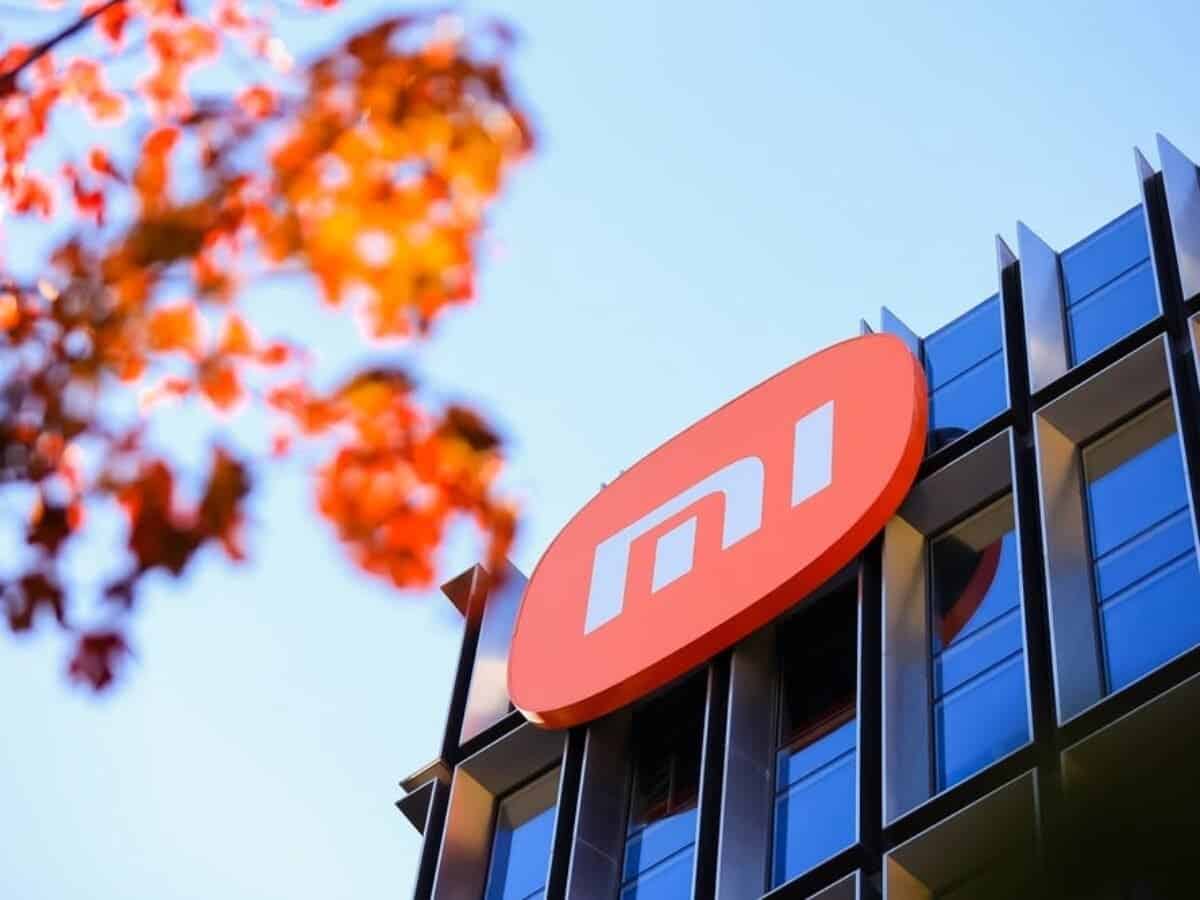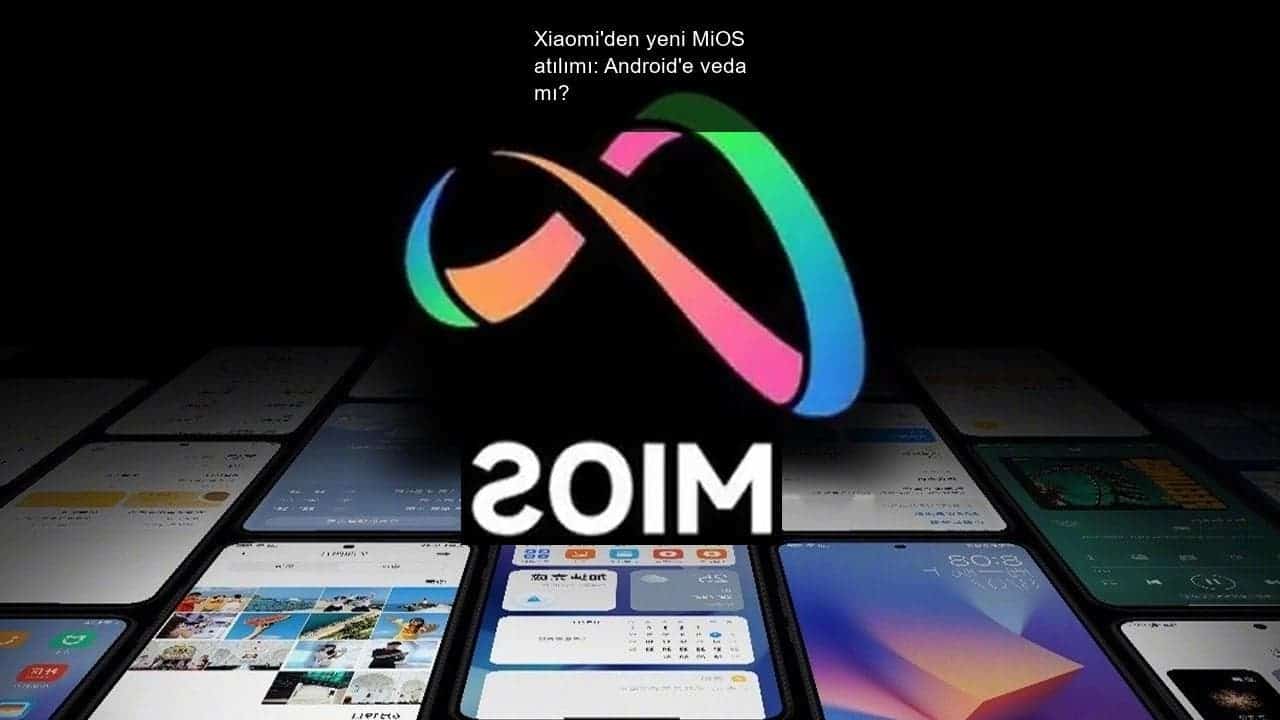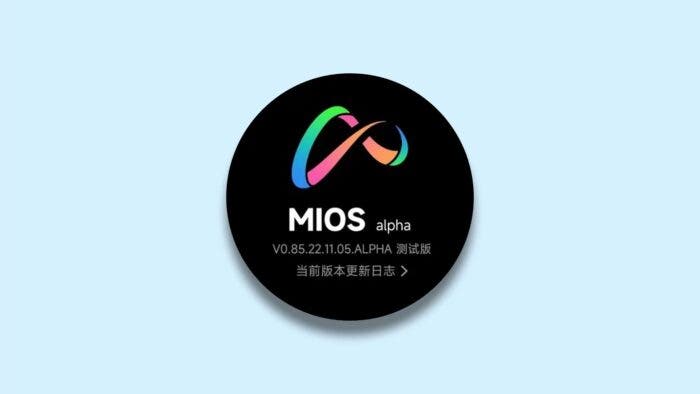Xiaomi, the Chinese smartphone maker, has registered the trademark “MiOS” in China. This has sparked speculation that the company is developing its own operating system, which could replace MIUI, its current Android skin.
Xiaomi Registers “MiOS” Trademark, Could Be a New Operating System

MIUI is one of the most popular Android skins in the world. It is known for its customization options and features, such as its always-on display and Second Space functionality. However, it has also been criticized for its bloatware and ads.
The development of a new operating system by Xiaomi would be a major move. It would allow the company to have more control over its software and avoid relying on Google’s Android. It would also give Xiaomi more flexibility in terms of features and design.
There are a few reasons why Xiaomi might be developing its own operating system. One possibility is that the company is concerned about its dependence on Google. Google has been increasingly cracking down on Chinese companies, and there is a risk that Google could one day block Xiaomi from using Android.
Another possibility is that Xiaomi is looking to expand into new markets. Some countries, such as the United States, have security concerns about using Android. A Xiaomi-developed operating system could address these concerns and make it easier for the company to sell its phones in these markets.
Whatever the reason, the registration of the “MiOS” trademark is a significant development. It suggests that Xiaomi is serious about developing its own operating system, and it could have a major impact on the smartphone market.
What We Know So Far
The following are the things we know about MiOS so far:
- The name “MiOS” has been registered by Xiaomi in China.
- The trademark registration covers a wide range of products and services, including smartphones, tablets, laptops, and wearables.
- There have been rumors that MiOS will be a fork of Android, but this has not been confirmed.
- It is possible that MiOS will be used in Xiaomi’s electric vehicles, which are scheduled to launch in the near future.
What We Don’t Know
There are still many things we don’t know about MiOS, including:
- When it will be released.
- What features it will have.
- How it will compare to Android and other operating systems.
The Implications of MiOS
The development of a new operating system by Xiaomi is a major development that could have a significant impact on the smartphone market. If MiOS is successful, it could challenge the dominance of Android and iOS. It could also make it easier for Xiaomi to expand into new markets.
However, it is also possible that MiOS will not be successful. It is a risky move for Xiaomi to develop its own operating system, and there is no guarantee that it will be a hit with consumers.
Only time will tell whether MiOS will be a success or a failure. However, the fact that Xiaomi is developing its own operating system is a sign that the company is serious about competing with the big players in the smartphone market.
The Future of MiOS
The future of MiOS is uncertain. However, there are a few possibilities:
- MiOS could be a success and challenge the dominance of Android and iOS.
- MiOS could be a failure and be discontinued by Xiaomi.
- MiOS could be used in a limited capacity, such as in Xiaomi’s electric vehicles.
Only time will tell what the future holds for MiOS. However, the fact that Xiaomi is developing its own operating system is a significant development that could have a major impact on the smartphone market.

Will it be a totally new operating system or just a fork of Android
It is still too early to say whether MiOS will be a totally new operating system or just a fork of Android. However, there are a few factors that suggest that it could be a fork of Android.
First, Xiaomi has a long history of developing Android skins. MIUI, its current Android skin, is one of the most popular in the world. This suggests that Xiaomi has the experience and expertise to develop a fork of Android.
Second, Xiaomi has a lot to gain from developing a fork of Android. A fork of Android would give Xiaomi more control over its software and allow it to avoid relying on Google. It would also give Xiaomi more flexibility in terms of features and design.
However, there are also some factors that suggest that MiOS could be a totally new operating system. For example, Xiaomi has been investing heavily in artificial intelligence and machine learning. This suggests that the company may be looking to develop an operating system that is specifically designed for these technologies.
Ultimately, only time will tell whether MiOS will be a totally new operating system or just a fork of Android. However, the fact that Xiaomi is developing its own operating system is a significant development that could have a major impact on the smartphone market.
Pros of Developing a Fork of Android
- More control over software: A fork of Android would give Xiaomi more control over its software. This would allow the company to customize the operating system to its own needs and preferences. For example, Xiaomi could add features that are not available in stock Android, or it could remove features that it does not want.
- Avoidance of relying on Google: A fork of Android would allow Xiaomi to avoid relying on Google. This would be a major advantage for Xiaomi, as it would reduce the company’s dependence on a single supplier. It would also give Xiaomi more flexibility in terms of its pricing and marketing strategies.
- More flexibility in terms of features and design: A fork of Android would give Xiaomi more flexibility in terms of features and design. This would allow the company to create a unique user experience that is tailored to its target market. For example, Xiaomi could add features that are popular in China, or it could design the operating system to be more efficient for low-end devices.
- Increased security: A fork of Android could be made more secure than stock Android. This is because Xiaomi would have the ability to customize the operating system to address specific security vulnerabilities. For example, Xiaomi could add features that make it more difficult for hackers to gain access to user data.
Cons of Developing a Fork of Android
- Costly and time-consuming: Developing a fork of Android would be a costly and time-consuming process. This is because Xiaomi would need to invest in developing the operating system, testing it, and marketing it to users.
- Lack of popularity: A fork of Android might not be as popular as stock Android. This is because there are already a large number of Android devices and apps that are compatible with stock Android. If Xiaomi were to develop a fork of Android, it would need to convince developers to create apps and games that are compatible with the new operating system.
- Lack of compatibility: A fork of Android might not be as compatible with apps and games as stock Android. This is because developers might not create apps and games that are compatible with the new operating system. If this were to happen, users of Xiaomi devices would have a limited selection of apps and games to choose from.
Overall, the decision of whether to develop a fork of Android is a complex one. There are pros and cons to both approaches, and the best decision for Xiaomi will depend on a number of factors, such as its budget, its goals, and the needs of its users.

Additional factors that Xiaomi should consider when making its decision:
- The size of its user base: If Xiaomi has a large user base, it may be more difficult to convince them to switch to a new operating system.
- The availability of apps and games: If there are a limited number of apps and games available for the new operating system, users may be less likely to switch to it.
- The cost of development: The cost of developing a fork of Android could be significant. Xiaomi would need to invest in developing the operating system, testing it, and marketing it to users.
- The risk of failure: There is always a risk that a new operating system will fail. Xiaomi would need to carefully consider the risks before deciding to develop a fork of Android.
Ultimately, the decision of whether to develop a fork of Android is a business decision that Xiaomi will need to make based on its own specific circumstances.






given how they ruined miui 14 and make themselves the worst android miui in the world.. they better just license and use other OS.